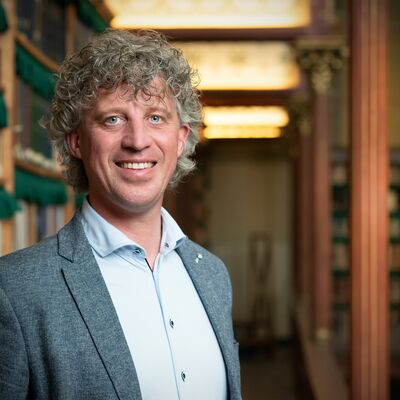Keynote Speaker
Dr. Coen Wilders is the Head of the Department of Collection Information and Archive at the Rijksmuseum in the Netherlands.
With a decade-long tenure at Utrecht University Library, culminating in his role as the Head of Academic Services, he has led several teams that support research. His academic background includes a PhD in early modern political history. Driven by a commitment to advancing open and FAIR (Findable, Accessible, Interoperable, and Re-usable) practices in scholarly communication, Wilders is dedicated to facilitating the effective dissemination of research within the cultural heritage domain.
In his capacity as a manager at the Rijksmuseum’s Research Services department, Wilders spearheads initiatives aimed at optimizing information and data management practices. With a focus on digitization, preservation, and curation, he ensures that the museum’s information and data remain aligned with the demands of an ever-evolving digital landscape.
Talk Information
Advancing FAIR Principles at the Rijksmuseum: Enabling Access to Cultural Heritage Data
The Rijksmuseum in the Netherlands is dedicated to sharing and opening information and data in the field of cultural heritage. Since 2011, the Rijksmuseum has been at the forefront of promoting openness by providing digital images of its collection and object metadata under a CCO license on its website. However, despite this progress, significant portions of valuable information and data from the Rijksmuseum remain largely inaccessible as data becomes increasingly diverse and complex. This includes, for instance, digital curatorial research documentation and data resulting from material engineering research.
For the past few years, the FAIR data principles have been central to our efforts, guiding us towards making information and data Findable, Accessible, Interoperable, and Reusable. The keynote will depict the multifaceted approach required to uphold these principles, reflecting on the diverse array of experiences encountered during this iterative process. From refining the data itself to enhancing data infrastructure, developing a new data policy, and fostering organizational data awareness, the Rijksmuseum is committed to ensuring that our museum’s wealth of information is available openly whenever possible and restricted when necessary, aligned with international standards.
While there will be much more work to be done in the years to come, adhering to the FAIR data principles lays a foundation for continued advancements in information accessibility and data dissemination. This enables both people and computers to engage with our information and data, providing context to our collection and facilitating the telling of stories about our collection.
